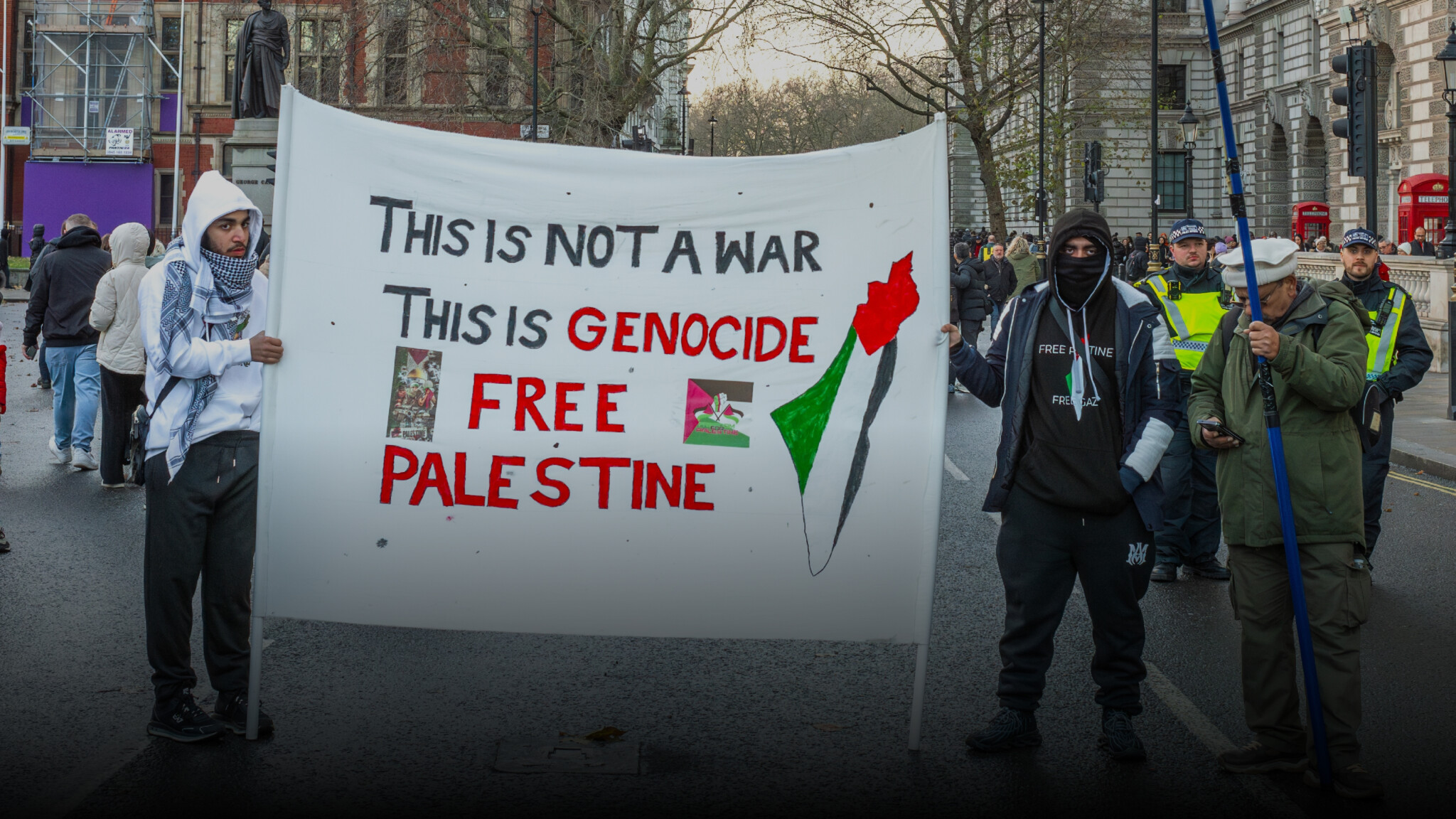
Activists crying “Gaza genocide” distort the term beyond recognition—betraying real victims and enabling a dangerous inversion of truth and justice.
Fresh off having her Gaza-bound boat intercepted by Israeli forces, Greta Thunberg found her next stage. This past weekend in Stockholm, she joined demonstrators accusing Israel of committing genocide, a charge as inflammatory as it is ignorant. Genocide is not a catch-all insult. It has a specific legal meaning: requiring demonstrable intent to destroy an entire people because of who they are.
When activists misuse this term, they insult the memory of real victims of genocide, betraying the survivors of true systematic extermination.
Enjoy independent, ad-free journalism - delivered to your inbox each week
But Thunberg’s performance was not an isolated incident. Similar protests erupted across Europe and the United States this past weekend — eerily synchronized, professionally staged, and too well-funded to be dismissed as organic. This isn’t conspiracy theorizing; it’s a recognition of strategy. Many of these events are connected to activist networks funded by wealthy donors, some with well-documented ties to regimes that are openly hostile to the West and its allies, including the Chinese Communist Party. These networks have increasingly provided cover for antisemitic rhetoric, allowing it to flourish under the pretense of political protest. What emerges is not a principled stand for justice, but a movement that selectively applies its outrage, often aligning with those who reject the very values it claims to defend. The campaign has reached such ludicrous heights that the European Parliament is now preparing to formally characterize Israel’s military response as genocidal.
Let us be clear about what genocide actually means. Raphael Lemkin, a Polish-Jewish legal scholar, spent years documenting the horrors of Nazi extermination policies before coining the term in 1944. His work was a forensic attempt to define a new kind of evil, one that defied existing legal frameworks. Lemkin’s analysis laid the groundwork for the 1948 Genocide Convention, which codified the term under international law. Lemkin set a high bar, and for good reason. Genocide demands clear, demonstrable intent to destroy an entire group, based solely on their ethnic, religious, or national identity.
Lemkin’s analysis laid the groundwork for the 1948 Genocide Convention, which codified the term under international law. Lemkin set a high bar, and for good reason. Genocide demands clear, demonstrable intent to destroy an entire group, based solely on their ethnic, religious, or national identity.
Intent to destroy does not mean to defeat militarily, nor to reclaim territory, but to erase a people entirely. Measured against this standard, the charge against Israel falls apart. Gaza’s population has increased ninefold since 1948, and, across the region, Palestinian birth rates remain high. Media outlets continue to publish and broadcast. Palestinian political parties, including Arab representatives, serve in Israel’s parliament, and schools continue to operate. To call this genocide is a disturbing distortion that drains the term of its moral and legal gravity.
Meanwhile, Hamas explicitly advocates for the destruction of Jews worldwide. Its founding charter reads as a blueprint for ethnic elimination, and the events of October 7th were a demonstration of this pernicious principle: civilians targeted, families systematically executed, and elderly and infants slaughtered.
How did we arrive at a point where this reality is inverted?
First, ideological movements that prioritize narrative construction over empirical evidence have captured major institutions. Universities have abandoned their mission of teaching critical analysis in favor of delivering predetermined conclusions. Media organizations have replaced investigative journalism with political advocacy, and international bodies have substituted theatrical performance for the pursuit of justice. When institutions cease to value truth, truth ceases to function as a principle for organizing society.
Help Ensure our Survival
Second, we see the systematic application of what I call the racism of reduced expectations across the Middle East. It’s similar to the bigotry of low expectations, but goes much further. This mindset doesn’t merely assume less of certain actors; it actively excuses their worst atrocities. Hamas is granted a moral exemption not because its actions are misunderstood, but because many in the West have come to expect barbarism from them. When they burn families alive, it’s reframed as “resistance”. When they rape women and drag their corpses through the streets, it becomes “desperation”. The very behaviors that would rightly be condemned as evil if committed by a Western army are rationalized, even romanticized, when committed by jihadist militias.
Israel, however, faces an entirely different standard. Democratic, transparent, and accountable to its citizens, it must somehow achieve the impossible. It must fight wars without casualties, defend itself without causing offense, and exist without inconveniencing neighbors who openly call for its destruction. This, I argue, represents moral corruption of the highest order.
Third, we witness antisemitism’s eternal capacity for reinvention. Jews were blamed for medieval plagues, for both capitalism and communism simultaneously, and for both starting wars and avoiding military service. The justifications evolve, but the underlying hatred remains constant.
The term genocide joins racism, fascism, and apartheid in the graveyard of words smothered by political convenience. When every military action becomes genocide, when every policy becomes apartheid, and when every disagreement becomes fascism, society loses the ability to distinguish between different grades of moral failure. The consequences multiply rapidly. Real genocides proceed while the world argues about definitional games. I think of Holocaust survivors who still wake up screaming from memories they cannot silence, of Rwandan survivors who watched their families butchered with machetes in broad daylight, and Cambodians who clawed their way out of mass graves. These people know what genocide means. They know why the term was invented, and they know why it must never be used lightly.
I think of Holocaust survivors who still wake up screaming from memories they cannot silence, of Rwandan survivors who watched their families butchered with machetes in broad daylight, and Cambodians who clawed their way out of mass graves. These people know what genocide means. They know why the term was invented, and they know why it must never be used lightly.
We are at a crossroads. One path leads further into the abyss: where words mean whatever a mob wants them to mean, where evidence is optional, where outrage is manufactured, and where history is rewritten. The other path is harder, but it’s the only one worth taking. It insists on clarity over confusion, facts over fiction, and truth over tribalism. It demands that we treat the term genocide not as a soundbite, but as the sacred descriptor of the worst crime humanity can commit.




Comments (2)
Only supporting or founding members can comment on our articles.